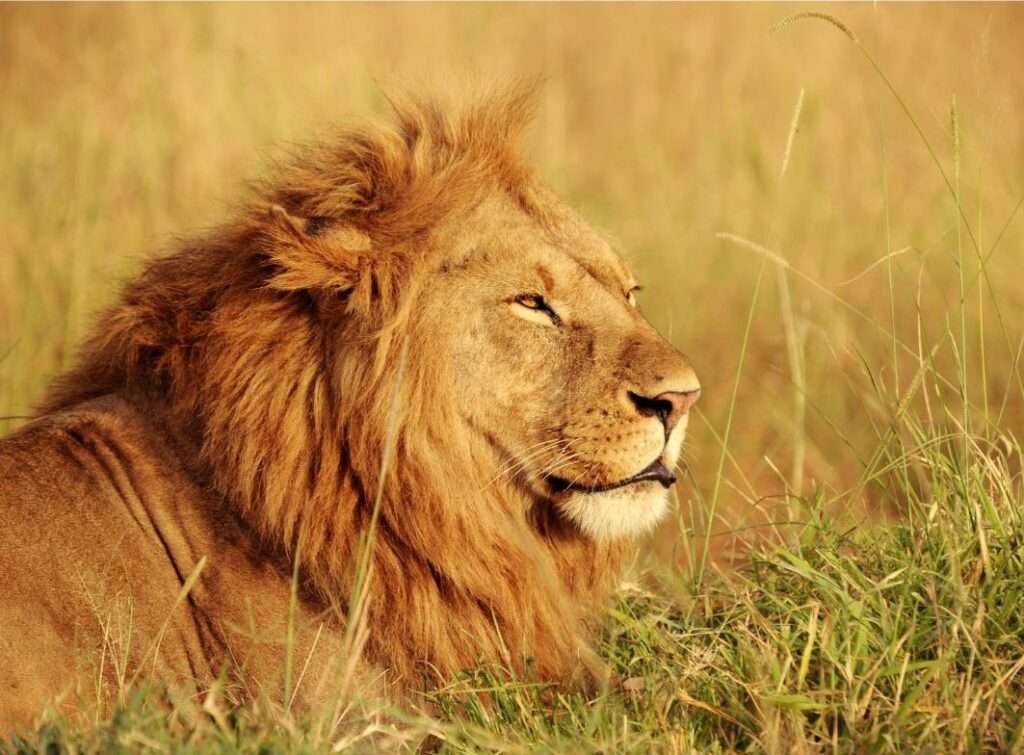
When I first moved to western Massachusetts, a new acquaintance invited my husband and me to dinner with a couple she wanted us to meet. She said we had a lot in common with them because of the “food thing.” I wasn’t entirely surprised to learn that this meant that one half of the couple avoids GMOs and gluten and is interested in juice fasting. She ordered chicken meat for dinner, so we clearly didn’t have a lot in common over the “food thing.”
Still, we bonded over a shared appreciation for classic rock music, and I enjoyed talking with her. We were not destined for friendship with this couple, though. That became abundantly clear towards the end of the evening (thankfully towards the end!) when we learned that the other half of the couple had recently returned from hunting big game in Africa. It didn’t occur to the acquaintance who organized our dinner that vegans don’t generally seek out the company of people whose avocation is hunting lions and elephants.
It wasn’t at all her fault. I’m a dietitian after all, and people often assume my dietary choices are strictly about health. I like plant foods and I like their health benefits, but I don’t eat them exclusively because I want or need to. I eat them because once you eliminate the products of animal cruelty, abuse, and exploitation, plants are what are left. If I cared only about the health of my body, I’d have no problem eating a mostly-but-not-entirely plant-based diet.
A few days after my dinner date with the big game hunter, a young guy who was working at my house asked about my work. I explained that I was a dietitian and that I educate people about how to eat healthfully as vegans. I asked if he knew what veganism was. He looked a little uncertain and then said, “It’s no meat and…well, all-natural, right?” Like the friend who had organized the dinner, he didn’t have a clue about the connection to animal use.
People stop eating animals for all kinds of reasons and that’s fine with me. But, in a society that doesn’t pay much attention to the rights of animals, the whole concept of veganism can sail right over people’s heads. It’s such a powerful concept and we lose a little bit of that power when we reduce veganism to “a diet” that is strictly about us and the state of our bodies. How we define and talk about veganism really does matter.
I’ve added a definition of veganism to this website based on my understanding of the concept. I hope it captures its meaning in a succinct and welcoming way. My aim always is to speak in a way that celebrates a vegan ethic and the rights of animals, and never in a way that denies them. Please let me know what you think.
Discover more from The Vegan RD
Subscribe to get the latest posts sent to your email.

I wish someone had told me at the outset of going vegan that ethical veganism is an option. I wish I had come to this conclusion myself and sooner. Other creatures (and our mutual future) are at the center of my choices despite having gone back to eating meat. It isn’t about perfectionism and strict adherence, in my opinion. Being vegan changed how I see all living things. I wish that was the core message that people got first and not just that veganism is about clean eating or tofu or whatever.
Beautifully, eloquently, and clearly written! Along with a definition of “vegan” that is both useful and moving, and gets right to the heart of things.
Excellent article. I’ve been a vegetarian since 1975, and vegan about the last ten years. I will certainly share your post.
thanks for sharing your thoughts. I run into this with my family all the time.
My mother thinks vegan means “picky eater” and that it’s just that I don’t like hotdogs and steaks. She has never seen or listened or learned about why I am vegan (even though this has been my life since I was 16). I think her lack of knowledge and interest is pretty common. Sadly.
Hey, I was looking at your section on definition of veganism and I think you could be more conceptually accurate going with the formal definition of 1951 in the article ‘Veganism Defined’ By Leslie J. Cross. After all that was the result after seven years on reflections of what veganism should encompass. What comes after on the Societies’ end with the modernized definition could be questionable as “possible and practicable” removes the importance of the ethical principle of what veganism should be and that was adequately stated in 1951.